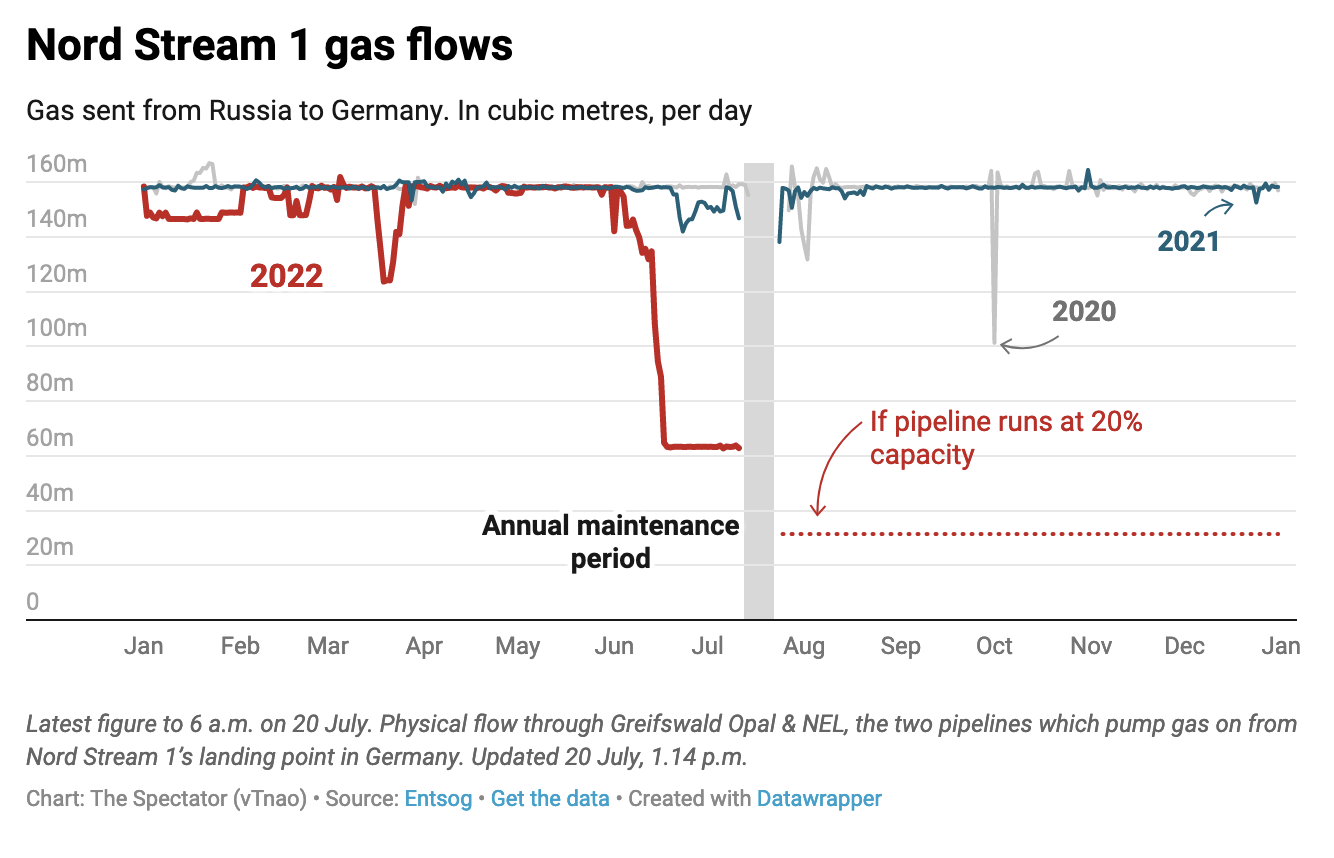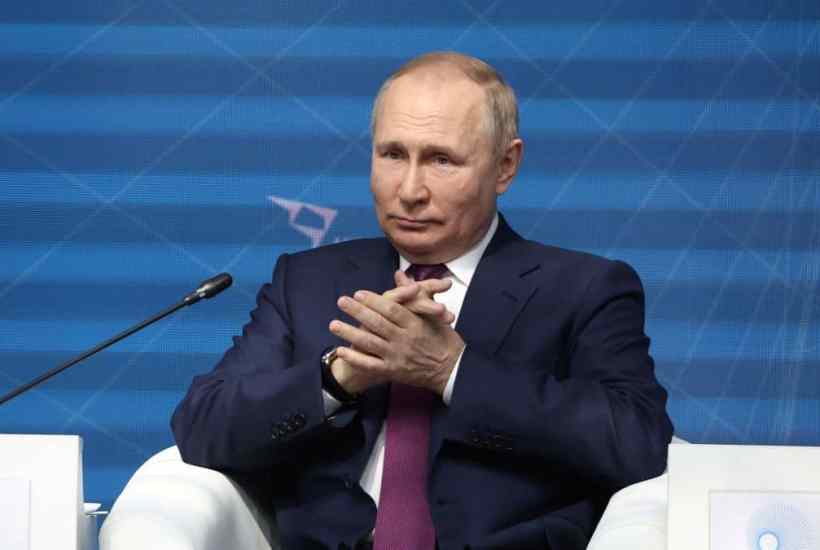Europe’s gas situation has now gone from bad to worse. Gazprom will cut volumes through Nord Stream 1 in half, from 40 per cent of capacity to about 20 per cent from tomorrow onwards, pushing Germany into further danger ahead of winter. The German government will probably have to move into the highest level of its security of supply protocol. This is a state of emergency, and means rationing could be on the horizon. The EU will also need to work out how it will respond, as member states push back against the European Commission’s previous measures. It adds up to an extremely difficult picture economically, socially, and politically for Germany in particular, and Europe as a whole.
According to Gazprom, the cuts, which will see flows through Germany’s main source of Russian pipeline gas drop to 33 million cubic metres per day, are technically necessary. It says that it will have to shut down another turbine at its Portovaya compressor station. They have said that this is because they have not yet received the Siemens-produced turbine that was previously stuck in Canada. The turbine has made its way to Germany, but Gazprom claims not to have received all the necessary paperwork.

This is, however, probably a pretext, and evidence that the Kremlin can create its own version of events to fit their narrative, regardless of what else happens. The German economy ministry has pointed out that the turbine was intended as a replacement for another turbine, to be changed out in the autumn. If we take the German government at their word, then there’s no explanation for why the turbine’s non-delivery would require the Russian firm to cut their capacity. The new barriers that Gazprom throw up surrounding the turbine’s eventual delivery to Russia are also very strange.
With this in mind, it’s impossible to fully know what’s next. Will the pipeline ever come back to anything like full capacity, or might Gazprom shut it off completely? In any case, the situation for Germany is now dire. Even before yesterday’s news, Germany was starting to struggle with filling its gas storage. The German government recently set an even higher storage target for 1 November, the beginning of winter heating season, at 95 per cent of capacity.
But rather than picking up, the pace at which German gas buyers have been filling the country’s reserves has tailed off. Daily net injections, or how much gas is being put into storage versus how much suppliers take out, has dropped off in the last couple of weeks. This is despite average daily temperatures steadily climbing, according to readings from Frankfurt airport. The main reason why this has been the case is that Uniper, the country’s largest gas trader, has had to withdraw from its reserves to fulfil gas deliveries because of its dire financial situation.
As a result, total storage volumes, the integral of daily net injections, have plateaued. While the rate at which gas buyers were replenishing their stocks exceeded the pre-pandemic five-year average, this has recently reversed. Total storage volumes are still much better than in 2021, but the overall trend is worryingly similar. Last winter also saw much healthier Russian volumes, and relatively mild weather that allowed Europe to avoid fully depleting its stocks.
For Germany, this will mean having to take drastic action. The logical next step is to move towards full-on gas rationing by triggering stage three of the country’s security of supply alert mechanism. This paves the way for the state to assume direct control of gas suppliers’ operations, and to implement mandatory reductions. Even before the recent cuts, Klaus Müller, the head of Germany’s federal network regulatory agency, said that he believed Germany would need to achieve a 20 per cent reduction in demand. This is more than the European Commission’s proposed target of 15 per cent, and considerably higher than the 5-7 per cent demand reduction which the agency and the German government has estimated so far.
Got something to add? Join the discussion and comment below.
Get 10 issues for just $10
Subscribe to The Spectator Australia today for the next 10 magazine issues, plus full online access, for just $10.




















Comments
Don't miss out
Join the conversation with other Spectator Australia readers. Subscribe to leave a comment.
SUBSCRIBEAlready a subscriber? Log in